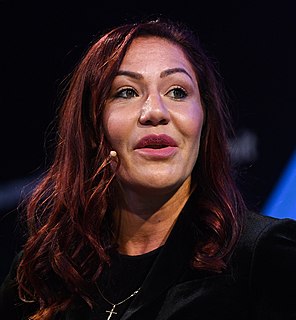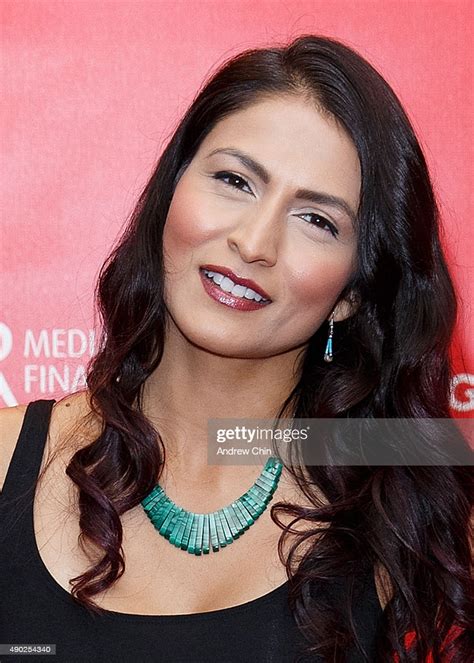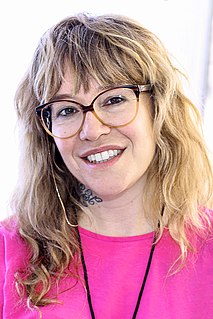A Quote by A. S. Byatt
She didn't like to be talked about. Equally, she didn't like not to be talked about, when the high-minded chatter rushed on as though she was not there. There was no pleasing her, in fact. She had the grace, even at eleven, to know there was no pleasing her. She thought a lot, analytically, about other people's feelings, and had only just begun to realize that this was not usual, and not reciprocated.
Related Quotes
She was beautiful, but not like those girls in the magazines. She was beautiful, for the way she thought. She was beautiful, for the sparkle in her eyes when she talked about something she loved. She was beautiful, for her ability to make other people smile, even if she was sad. No, she wasn't beautiful for something as temporary as her looks. She was beautiful, deep down to her soul. She is beautiful.
He lay far across the room from her, on a winter island separated by an empty sea. She talked to him for what seemed a long while and she talked about this and she talked about that and it was only words, like the words he had heard once in a nursery at a friend's house, a two-year-old child building word patters, like jargon, making pretty sounds in the air.
Just like Marilyn Monroe is a lot of girls' idol, that's how I feel about Dorothy Dandridge. And she any Marilyn were very close friends. She went through a lot, and people told her that she couldn't do certain things, but she didn't let that bother her. She said in her mind that she was going to do them and that nothing was impossible, and she did it. It was so sad... She died from drugs, and drinking as well.
Kristen is really focused and really quiet, as an actress. She just does her thing, but she's cool. I like her. I know a lot of people have mixed comments about her, but I think she's a rad person. She's just focused on what she's doing, as an actress, and she wants to pick the right roles, and she's committed to her craft. She's really cool. We got along. There weren't any tensions or anything.
It wasn't about how she looked, which was pretty, even though she was always wearing the wrong clothes and those beat-up sneakers. It wasn't about what she said in class--usually something no one else would've thought of, and if they had, something they wouldn't have dared to say. It wasn't that she was different from all the other girls at Jackson. That was obvious. It was that she made me realize how much I was just like the rest of them, even if I wanted to pretend I wasn't.
Gwynn, she was always talking about wanting to be drunk and honestly I did want to encourage that, I wanted to go to a bar with her and let all the stuff sobriety pushed down be released so I could catch it in my palms and finally kiss her. She was just so sad. Melancholy was a fleshy wave permanently cresting on her face, she had to speak through it when she talked.
My mother hid the struggle from us children. She complained about her salary, and she had a tough time. Although she became a headmistress, she still had to do a lot of sewing. The more I think about her, the more remarkable I realise she was. And she understood straight away when I said that I wanted to write.
I talked to Shailene Woodley the next day [after arrest]. She was fine, and she was very happy. She knew that it brought attention to a cause that she cared very much about. She was in high spirits and knew that was a possibility when she was protesting. The people who arrested her, if they were trying to prove a point of not to protest, they only helped the cause.
She came into a room; she stood, as he had often seen her, in a doorway with lots of people round her. But it was Clarissa one remembered. Not that she was striking; not beautiful at all; there was nothing picturesque about her; she never said anything specially clever; there she was however; there she was.
I talked to my mother about it a lot. I asked her what it was like to grow up in New York and Harlem in the 1920s and 1930s, and I asked her about a woman leaving her husband. I asked her about how she would feel about that woman, and my mother grew up in the Church Of God In Christ, and she told me that the woman might be isolated because the other women thought she might go and come after their husbands. That's how they thought then.
Her life was beginning to make sense again, although she couldn’t say she was enjoying it. But her mind was clear, and her heart was not constantly as heavy. Only when she thought about him. But she knew that in time, she’d survive it. She had done it before and would again. Eventually the heart repairs.
From the first time he'd met her, he'd sensed an air of contradiction about her. She was very much a woman, but still retained a waiflike quality. She could be brash, and at times deliberately suggestive, yet she was painfully shy. She was incredibly easy to get along with, yet she had few friends. She was a talented artist in her own right, but so self-conscious about her work that she rarely completed a piece and preferred to work with other people's art and ideas.







































